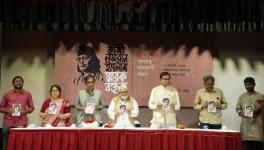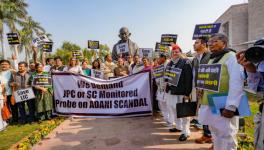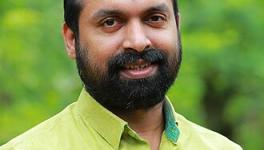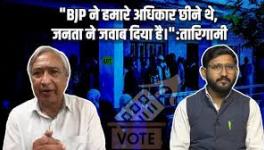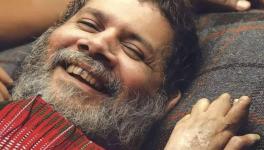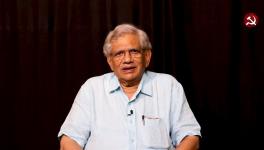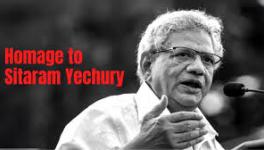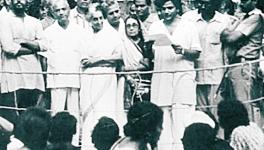Massive Student Protest in Kochi Against High Court Ban on Campus Politics in Kerala
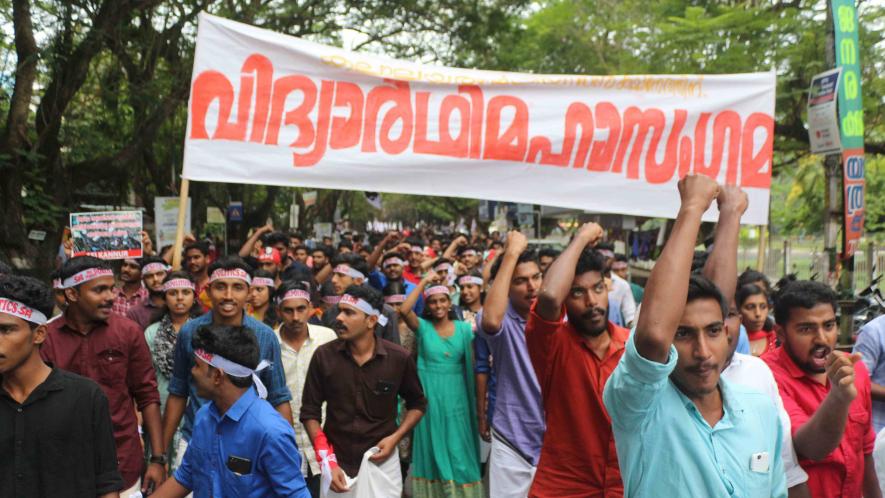
The Students' Federation of India (SFI) held a massive “Vidyaarthi Maha Sangamam” (Students’ Mega Confluence) on Thursday at Kochi, in protest against the recent High Court order which sought to ban campus politics in Kerala. Thousands of students marched from the Rajendra Maidan to the Marine Drive, where a public meeting was held. The Students’ Mega Confluence, with the slogan "Bans Cannot Defeat Campuses”, was inaugurated by Kodiyeri Balakrishnan, CPI(M) State Secretary and former all India Joint Secretary of SFI.
A Division Bench of the Kerala High Court had issued an interim order on 13 October which said that political activities like dharna, hunger strikes and practices like satyagraha have no place in a constitutional democracy, much less in academic institutions. "Anyone indulging in the said activities in an educational institution would make himself liable to be expelled and/or rusticated," the court had observed.
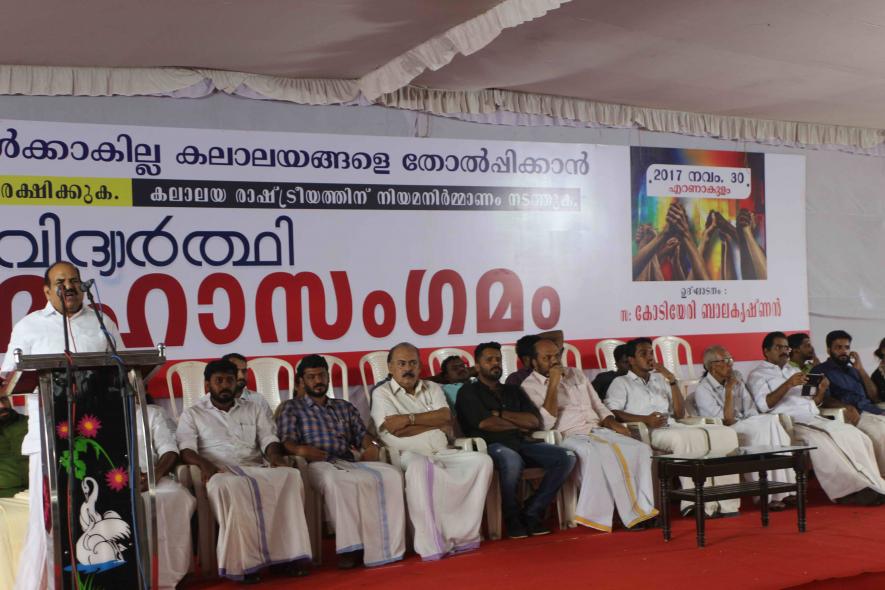
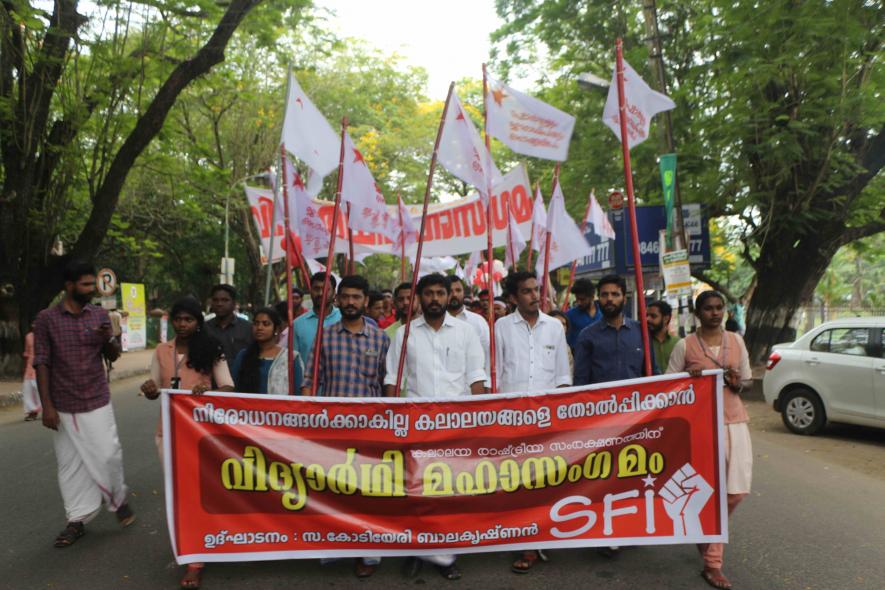
The order had elicited widespread criticism from student and youth organisations. "The High Court order which says that there should be no politics in educational institutions is an encroachment on the rights of the students. This is undemocratic," the SFI had said. "Engaging in organised political activity is a democratic right of students. The High Court's stand which bans the citizens' rights which the constitution promises is unfortunate... Student struggles across the country also played a crucial role in India's liberation from British colonial domination. The agitations that students led in campuses and outside, from the time of the freedom struggle to the Emergency, cannot be forgotten.”
"Managements and ruling classes have tried to control the work of campus-based students' organisations. These forces fear organised student politics because it questions their unfair and exploitative practices. The college unions which are formed as a result of students getting organised constitute the common platforms of students. Campus politics enables a number of academic and non-academic activities. Where campus politics is missing, forces which peddle narcotic drugs, and groups which indulge in ragging thrive. The hold of caste-communal forces would increase,” the SFI statement said.
The All India Students' Federation (AISF) and the All India Youth Front (AIYF) had also come out against the court order. The AIYF demanded that the HC review the order, and the AISF urged the government to enact legislation to protect campus politics.
P Sreeramakrishnan, the speaker of the Kerala Legislative Assembly, had said that the High Court order is illogical, and that legislation is necessary to overcome the problems caused by the order. The speaker said that denying students the freedom to organise and the freedom to use means of protest amounted to judicial activism, and that the Legislative Assembly has the authority to frame laws.
Both the ruling coalition and the opposition in Kerala have been united in their opinion that campus politics is necessary. Kodiyeri Balakrishnan had said that the court verdict that agitations and marches should not be allowed on campuses will only make those engaged in commercialisation of education happy. "There are torture rooms in self-financing colleges where student organisations are not allowed to function," he had said.
It was subsequently reported that the State government is preparing to bring a law to protect the democratic rights of students. The government reportedly directed the Law Department to check whether college campus politics has been legalised in any other States. (Watch a short Newsclick feature on the state of campus democracy in India here.) The Education Department has been asked to prepare a tentative document for legislative purposes in this regard, said the report in Samakaalika Malayalam.
The protest held by the SFI on Thursday in Kochi witnessed a massive gathering of students. Prominent literary critic and author MK Sanu delivered the keynote address. Media critic and former MP Sebastian Paul, and filmmaker Aashiq Abu were among the other speakers at the event.
The Mega Confluence demanded that campus democracy should be protected and that there should be legislation for the purpose.
CPI(M) State Secretary Kodiyeri Balakrishnan said in his inaugural speech that the government should enact legislation to give legal sanction to campus democracy in colleges. The government and the legislature should intervene to protect the democratic rights of students, he said. The law should enable school parliament elections. It should facilitate elections and the formation of unions in colleges and universities. The representation of colleges in University Unions should be determined by the number of students in the respective colleges.
The Left Democratic Front government of Kerala should come forward to bring in a legislation which would be a model for other States in this regard, said Kodiyeri Balakrishnan. "Courts should not undermine democratic rights. Courts should analyse facts with a sense of reality before issuing orders," he said.
What business do "politicians" have in the campuses of Kerala, the court had asked. The court did not realise the reality that it is student organisations and not political parties which engage in campus politics in the campuses of the state. The court should have actually asked, what business do profiteering "education businessmen", caste organisations and communal forces have in the campuses, Kodiyeri Balakrishnan said. The court order would only serve to create political illiterates in campuses. Education businessmen, the self-financing private college managements, and the communal forces are trying to turn students into political illiterates. The same thinking is behind the court order as well.
Campuses should witness enlightened political debates. The atmosphere in 99% of the educational institutions with campus democracy is peaceful. The court's observation to the contrary is not in keeping with reality. It is not logical to ban student politics if there are some clashes in the remaining one per cent of campuses. There have been violence and even murders during general elections in the country. But that has not led to the banning of political activity and elections in the country.
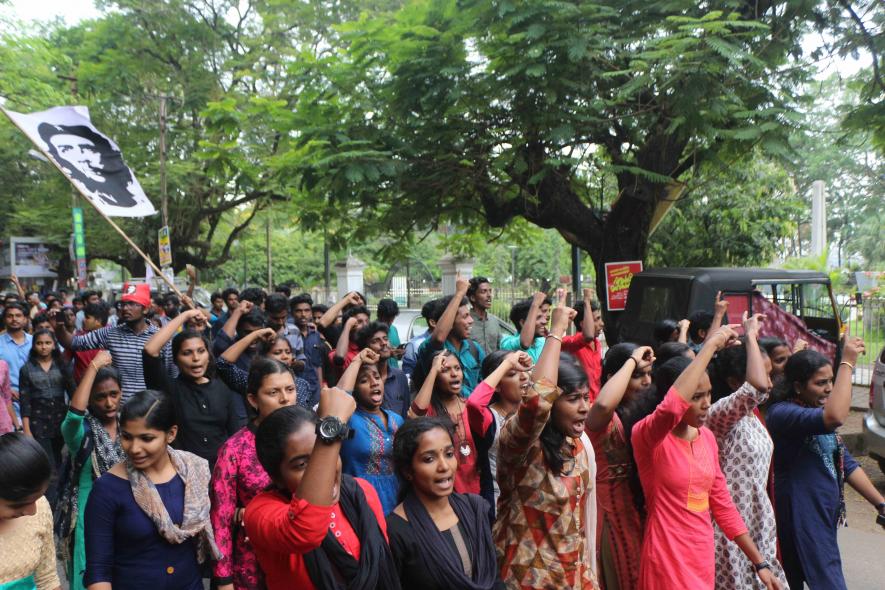
“More problems and violence occur in the self-financing private colleges without campus democracy, compared to the colleges with freedom for students to engage in political activity,” said Professor Sanu in his address.
Sebastian Paul noted that the orders issued in the last 20 years by the High Court and the Supreme Court on the issue of campus democracy have been mostly anti-democratic. Legislation is the method to defend against such orders. The law should be in keeping with the constitution, and without loopholes.
In a context where democracy is facing big challenges, such court orders would lead to the people losing faith in the constitution, said filmmaker Aashiq Abu, who was an activist of the SFI during his student days.
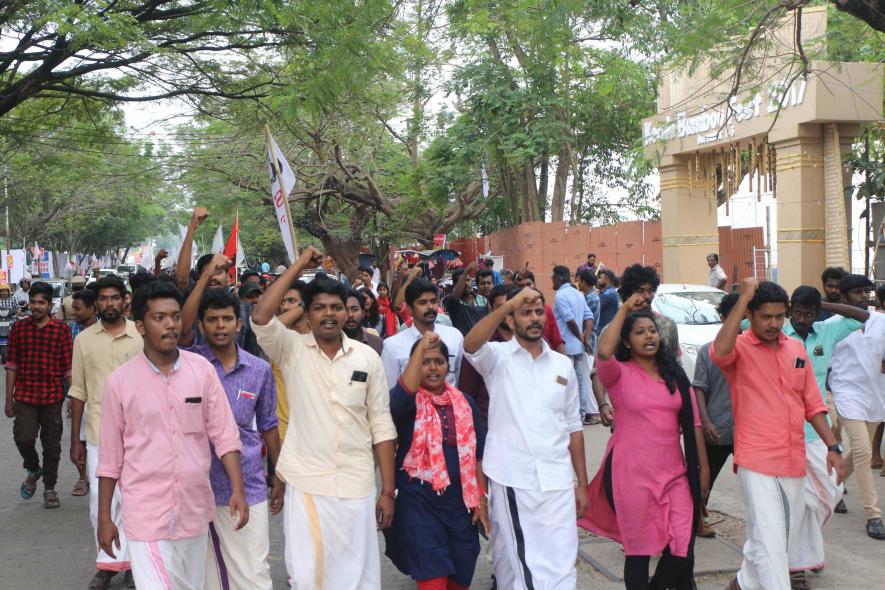
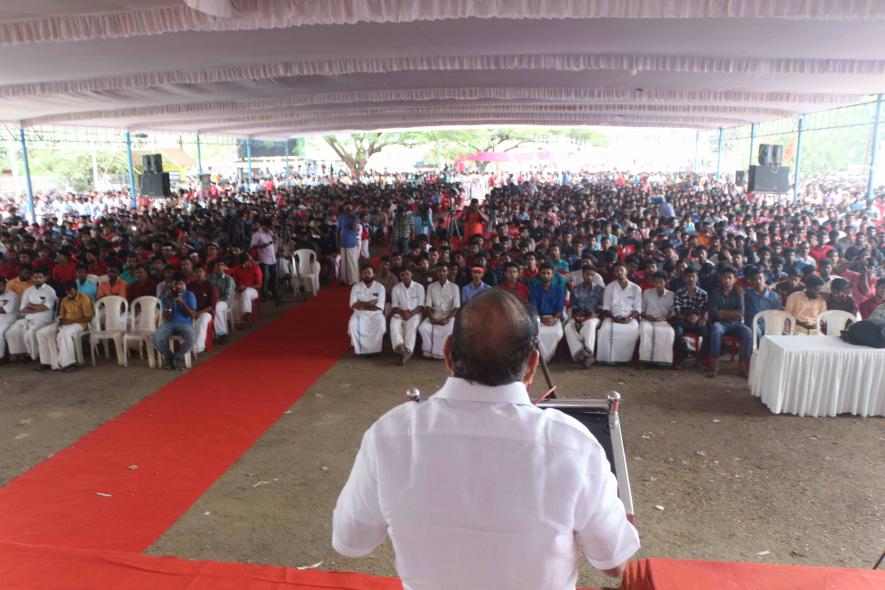
(Photos courtesy Erfan Ebrahim Sait)
Get the latest reports & analysis with people's perspective on Protests, movements & deep analytical videos, discussions of the current affairs in your Telegram app. Subscribe to NewsClick's Telegram channel & get Real-Time updates on stories, as they get published on our website.









